What causes wrongful prison convictions?
At Toronto Metropolitan University in Canada, Professor Caroline Erentzen is a social psychologist researching wrongful convictions. With 2% to 5% of serious offences ended in an innocent person being convicted, Caroline’s work is playing a huge role in investigating how and why so many people spend years in prison for crimes they did not commit.
Talk like a … social psychologist
Defendant — an individual accused in a court of law
Exonerate — when someone is cleared of committing a crime
Forensic science — scientific techniques that collate, process and analyse evidence for legal cases
Juror — a person on a jury
Jury — a group of people (selected at random) who listen to the evidence and give a verdict in a legal case
Testify — give evidence in a court of law
Sadly, being wrongfully convicted for a crime is not as uncommon as it should be. Forensic evidence can be misleading, eyewitnesses can be mistaken, defendants can be pressured into false confessions (often by harsh police interrogations), and people on trial might not have the money to afford strong defence lawyers, to name a few reasons why.
It is difficult to know exactly how often wrongful convictions occur. “Most of our knowledge comes from cases in which a person was exonerated, but we don’t know how many innocent people remain in prison,” says Professor Caroline Erentzen from Toronto Metropolitan University. “Based on the cases we do know about, however, estimates suggest that thousands of people have been wrongfully convicted and remain wrongfully convicted to this day.”
Unfortunately, getting a case reopened is a difficult and expensive process, and innocence organisations, such as Innocence Canada, receive thousands more requests for help than they can take on. “Only a small percentage of people are given the chance to prove their innocence, as cases can only be reopened if there is significant new evidence that was not available at the original trial,” explains Caroline.
“On average, it takes over a decade to get a reopened case exonerated.”
What is Caroline investigating?
Caroline is investigating which less-researched factors play a role in wrongly convicting innocent people. Her research involves analysing data from several different sources. As well as conducting archival analysis of court records and news articles that summarise real cases of wrongful convictions in Canada, she has looked at data from the US National Registry of Exonerations. In one study, Caroline asked criminal defence lawyers about their experiences representing innocent clients and the challenges they experienced in achieving justice.
“One factor for wrongful convictions is the use of jailhouse informants – prison ‘snitches’ who testify against an innocent person in exchange for some personal benefit, such as a reduced sentence or money,” says Caroline. Her research has shown that even when jurors find these witness testimonies suspicious, they are still strongly influenced by them and are more likely to find someone guilty if an informant gives evidence against them.
Caroline’s research also involves working with members of the public, presenting them with different evidence and seeing how they judge a hypothetical case. “This lets us see whether some evidence is biasing to an observer and if this might lead to biased judgements,” she says.
In addition, Caroline researches offence-based stigma. “This is when a person may be found guilty because the jury doesn’t like what they were charged with (for example, in very sensitive cases such as those involving child abuse), even if the evidence is weak,” says Caroline. Risk perception is also a factor, as Caroline’s work has shown many people err on the side of caution when someone is accused of a crime that they do not like. Even an accusation (which can be false) can be enough to stigmatise a defendant and erode the presumption of innocence.
The role of forensics
“Before DNA evidence, many people in the legal community believed that wrongful convictions were a myth or impossibility,” explains Caroline. “But the advent of DNA forensics in 1989 led to an ‘innocence revolution’, showing that many people had indeed been convicted of crimes they did not commit.”
However, there is a range of reliability in forensic science, with some elements (such as chemical analyses) being more reliable than others. “Forensic science is not infallible. Hair and fibre analyses, fingerprints, bitemarks, tyre treads, for example, are open to interpretations,” says Caroline. “Before making their expert decisions, forensic scientists are sometimes told whether an accused person has confessed, which increases the chance that the forensic scientists will conclude the evidence suggests guilt.”
One of the reforms that Caroline is advocating is for forensic scientists to be kept unaware of the defendant’s identity and accused crime until after they have their results. “Our research has shown that forensic scientists find evidence in line with guilt more easily if the defendant is non-white, charged with a sensitive offence, and gave a confession that they subsequently recanted,” she says.
Reference
https://doi.org/10.33424/FUTURUM640
© Skrypnykov Dmytro/Shutterstock.com
© Kiattisak Th
© Ilona Kozhevnikova
Similarly, Caroline’s research has found that jurors will be more persuaded by the testimony of a forensic expert if the expert is white, male or from a prestigious university. “This is true even if that expert provides inaccurate or weak evidence,” says Caroline. She is also cautious about high-profile experts whose status makes them more persuasive than they should be. “One such ‘expert’ was shown to have lacked any forensic training but developed a ‘god-like’ reputation in the Canadian courts,” she explains. “Tragically, his evidence led to many wrongful convictions of innocent, grieving parents.”
How does money come into it?
Caroline is also campaigning for legal defence and prosecution to be funded equally, as money plays a huge role in wrongful convictions. “While legal aid is available to help with court fees in Canada, the representation available is abysmal,” says Caroline. This aid is also only available to those who are quite poor, and so there is a significant number of people who exist in the middle ground – having too much money to qualify for legal aid but not enough to afford a strong defence lawyer or a trial that goes on for a long time.
“A single defendant without legal training may also have to go against a team of well-heeled prosecuting lawyers,” says Caroline. This means that the quality of defence a person receives in court can depend on the money they can spend funding that defence. “Wrongful convictions rarely target the wealthy,” says Caroline. “Few people can afford the time or expense of proving their innocence, and over 95% of all criminal cases are resolved through a guilty plea.” By funding both sides of a trial equally, each side would have the same resources available to them. Judges and juries would be given a fairer, more accurate view of the facts, and wrongful convictions would be less likely.
 Professor Caroline Erentzen
Professor Caroline Erentzen
Psychology, Law, & Justice Lab, Department of Psychology, Toronto Metropolitan University, Canada
Fields of research: Social psychology, forensic psychology
Research project: Investigating factors contributing to wrongful convictions in Canada
Funder: Social Sciences and Humanities Research Council of Canada (SSHRC) – grant number: 430-2023-00540
Website: psychlabs.torontomu.ca/pljlab
About social psychology
Social psychology is the study of how people think, believe, feel and behave in social settings. While psychologists often work in clinical and hospital settings, researchers working in psychology can apply their findings to a huge range of areas.
Psychological research is extremely relevant for investigating the law and justice system, for example, as it helps us uncover why we think the way we do, what assumptions and stereotypes we hold, and what flaws in our legal system arise because of this. “I find this area of research to be immensely rewarding, albeit emotionally challenging,” says Caroline. “Wrongful convictions represent an extreme abuse of state authority, and there are many potential paths that lead to an innocent person being convicted. I feel that the work we do in this area resonates with many people at a visceral level – those who have been falsely accused, those who fear accusation, and those who know someone caught up in an unfair legal system.”
Being able to communicate well and work with others is a significant aspect of working as a social psychologist. “It is our hope that we may be a bridge between psychological science and the law, communicating what we know about human cognition and behaviour and telling the law where it is wrong,” says Caroline. “This may involve collaboration with other academic researchers, knowledge outreach to lawyers and judges, and community education.”
The future of social psychology
“There will likely be opportunities for more interdisciplinary work, where people are trained in psychology and law, criminology or neuroscience. It is our hope that there will be increased research in psychology and law both from an experimental perspective and in a clinical forensic context,” says Caroline. “There is also a movement toward better integration of research with the ‘real world’, finding ways to inform judges, lawyers, schools, and so on. A person who is able to make those outreach connections will be a major asset.”
Pathway from school to social psychology
“There is a lot of statistical analysis involved in psychological research, so take courses such as finite math, algebra and geometry. You will also need to write your results into papers, so try to take courses that develop your research writing skills in social sciences,” says Caroline.
Study a bachelor’s degree in psychology or a related social science such as sociology. Afterwards, study for a master’s degree and a PhD if you want to work as a social psychology researcher.
If you are a high school student in the greater Toronto area, you can register for free to attend a lab experiment at Toronto Metropolitan University. The university also has an outreach programme for community members.
Caroline recommends getting experience by volunteering or working in the field early on. “Many groups could use a bit of help. Contact hospitals, charity groups, animal shelters, courthouses, law firms or professors,” she advises.
Explore careers in social psychology
“Social psychologists often work in universities, but many are able to find work in other industries such as marketing, human resources, business, or forensic settings (courts, prisons),” says Caroline.
Caroline recommends the Society for Personality and Social Psychology and the American Psychology Law Society for ideas on potential career paths into social psychology.
Meet Caroline

I have always felt strongly about justice and human rights, and I felt that psychology provided an opportunity to understand these issues better. I completed a master’s degree in psychology focusing on prejudice and discrimination and then went to law school to put my knowledge into action. After working for over a decade in law, I felt called back to more academic study, which I believe will ultimately lead to larger and longer-lasting change.
As a lawyer, I found that human rights jobs were far and few between, which made it hard for me to really feel that I was accomplishing what I wanted to do with my career. However, I did get an insight into how the legal system works and how it can perpetuate inequality and injustice. There is an old saying that you shouldn’t sit too close to the ballet, as this will spoil its magic. Something similar applies to the law. I’ve had a few ‘eureka’ like moments, but these are more so moments of “wait, that’s kind of interesting!” I have found repeatedly that the people who claim to be unbiased toward an outgroup are the ones that monitor their behaviour most closely and assign blame most easily to victims of that group. I’ve found that people will rely on very unreliable witnesses, all while saying how unreliable they think the witness is. I’ve seen that men experience high rates of stranger perpetrated sexual harassment, but they don’t feel they can express dislike of it. There are many ways that psychology can show us that our assumptions about the world may be inaccurate, which is a huge benefit for identifying problems with the legal system.
I feel extremely honoured when another researcher contacts me about collaborating on a project because they are familiar with my work from a publication or conference. I am perhaps most excited when a I see a student achieve their own accomplishments, milestones and recognitions.
We will continue the work on wrongful convictions, hopefully connecting with legal scholars and practitioners. Community based outreach will help to disseminate these findings further and, ideally, alleviate some of the problems we see in the legal system.
Don’t assume that there is one type of person that law schools or graduate schools are looking for. All diversity has value and there is absolutely no one-size-fits-all approach to knowledge. You have something valuable to add to our understanding of human psychology!
Meet Sarah
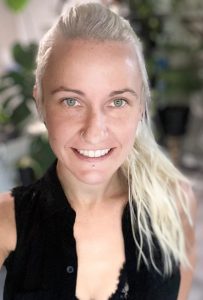
Sarah Martin, MA Student, Psychology, Law, & Justice Lab, Department of Psychology, Toronto Metropolitan University
My love for psychology started in high school, and after I chose to pursue an undergraduate degree in psychology, I knew I was on the right path. My undergraduate social psychology courses were so fascinating, and once I took psychology and law, I knew I had found the perfect fit for me.
My role for the last two years has been a master’s student and research assistant. A typical day can vary widely. Many days are spent working on coursework, designing and writing my thesis, and working as a teaching assistant. When I’m on campus, I usually work at my lab and spend time with other students in my cohort. Otherwise, a lot of my work can be done from home, and that flexibility is really helpful in terms of balancing my schedule.
The biggest challenge is finding balance. It takes some time after starting the programme to find a rhythm that works for you – managing school, outside work, your relationships and your well-being can sometimes feel like a job itself. Really focusing on time management skills and overcoming procrastination has helped me manage my schedule effectively. And of course, taking time for myself and doing things I enjoy is crucial for keeping up with my demanding schedule!
Very recently passing my master’s thesis is one of my proudest achievements so far. I was also awarded a life-changing scholarship for my doctoral work that starts this coming year, which was a huge moment for me.
I aim to work hard in my PhD and conduct research that truly helps people. That is why I got into psychology in the first place – to learn how to help. After my PhD, I would be content to find a career that allows me to be of service in my community and use my passion and skills for the greater good.
Sarah’s top tip
Focus on being a well-rounded person. Work hard in your studies, but remember the importance of your health, your passions outside of academia and, importantly, your relationships. I would not be where I am now without the support and guidance of others.
Do you have a question for Caroline or Sarah?
Write it in the comments box below and they will get back to you. (Remember, researchers are very busy people, so you may have to wait a few days.)
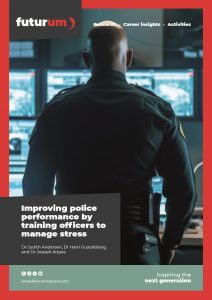
Read about researchers developing a programme to reduce police officer stress and improve decision making:
futurumcareers.com/improving-police-performance-by-training-officers-to-manage-stress

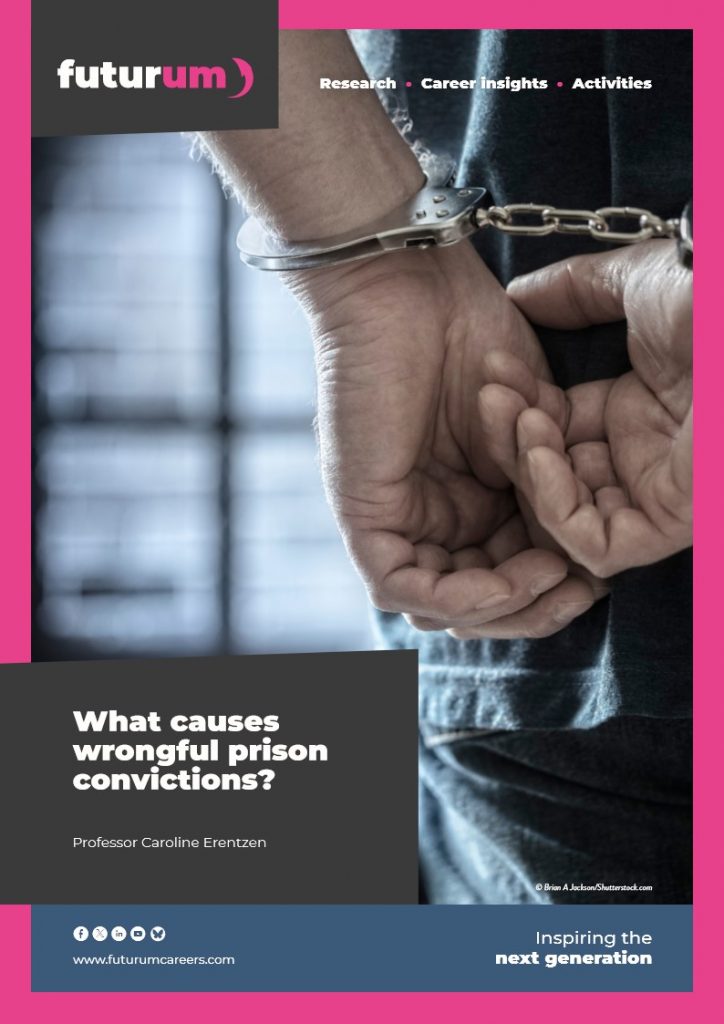
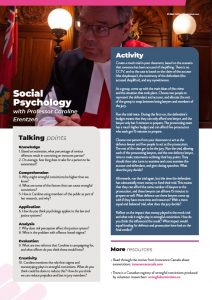

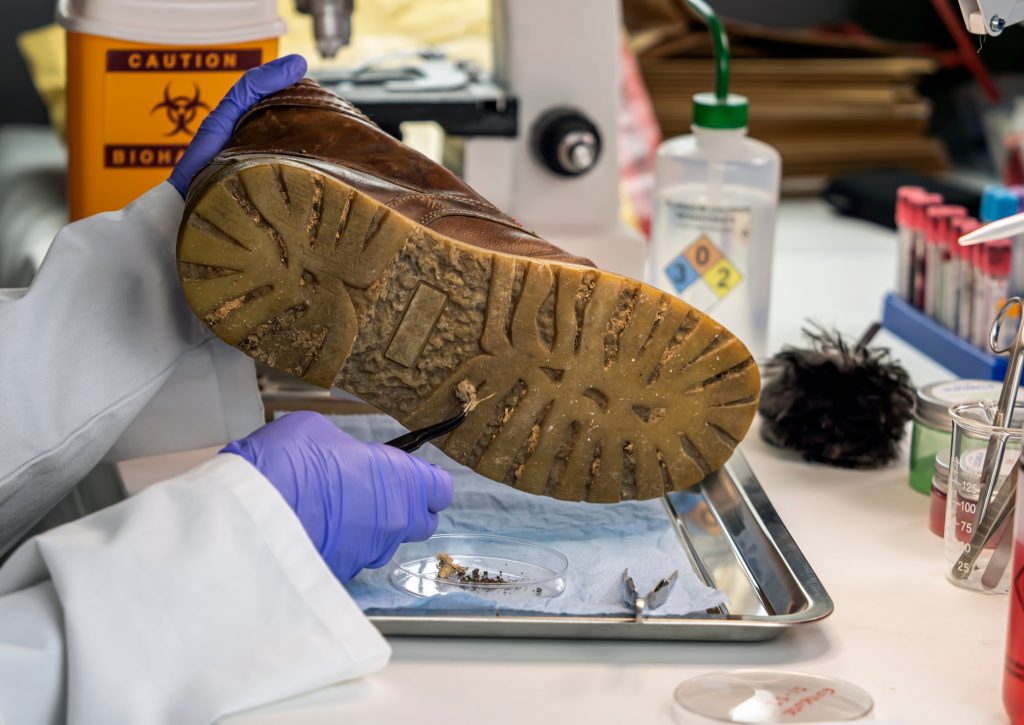




0 Comments